-
About
- About Listly
- Community & Support
- Howto
- Chrome Extension
- Bookmarklet
- WordPress Plugin
- Listly Premium
- Privacy
- Terms
- DMCA Copyright
- © 2010-2025 Boomy Labs

 Chek Wee, FOO
Chek Wee, FOO
Listly by Chek Wee, FOO
Interesting, insightful, useful, and relevant curated articles for the HR professionals. Feel free to add on to this listing and make this an even awesome list!
Source: http://www.hrcoffeetalk.com/
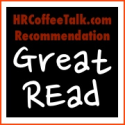
It was getting close to lunch time and the people seated around the table - the CEO and seven of his direct reports - were clearly getting antsy. But it wasn't because they were hungry. In fact, they'd been eating snacks all morning, mostly out of boredom.

Big data is all the rage in HR recently. But more immediately promising is the talk of small data - of more effectively managing the data we already have before we start thinking about analyzing more complex datasets. And nowhere is this more pertinent than with talent assessment data.

The business media lit up over the weekend with the news that Steve Ballmer, the college friend who worked alongside Bill Gates to build Microsoft and was heir to the CEO job, will step down within a year.
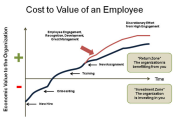
I can tell the economy is recovering: we're suddenly seeing companies tell us that "employee retention" has become a critical issue. Let me give you some research-based perspectives on this critically important topic. What does Retention Mean? Nearly all companies measure turnover.

In business and in life, the most critical choices we make relate to people. Yet being a good judge of people is difficult. How do we get better at sizing up first impressions, at avoiding hiring mistakes, at correctly picking (and not missing) rising stars?

This is a post from 18 months ago. As fast as technology is changing, it is still essential to ask the right questions. Big Data is as hard to imagine as the web was 20 years ago.

This blog was originally posted by Sarah Williams on the Peformance I Create blog. Twice a month Blogging4Jobs will feature a guest post from the up-and-coming multi-contributor blog, Performance I Create. Documenting the progression of our employees' training, performance and development is critical for managers because documentation provides independent and objective evidence of what happened or what didn't happen.

Analytics is a hot topic and HR analytics is no different. New books are constantly being published. Being " insight driven " is at the core of the CIPD HR practices. New software products and visualisations tools are being launched.

Open collaborative workspaces are the future of the work environment. But are they good for your employees and productivity? If your company's still operating out of a cube-and-office work environment, you're a dying breed: Nearly 80% of companies already have or are planning to set up an open-office design, according to a 2011 survey.

Documenting the progression of our employees' training, performance and development is critical for managers because documentation provides independent and objective evidence of what happened or what didn't happen.

Excellent read on the differentiating edge Google People Operations has over the thousands of HR departments out there.

Thursday, June 27, 2013 I just finished two weeks in Europe and attended the iRecruit Conference in Amsterdam. In addition to talking with many talent acquisition leaders and vendors, we previewed the findings of our upcoming High-Impact Talent Acquisition research which is highlighted below. 1. Social tools and "talent networks" are a hot topic.
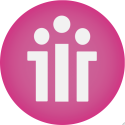
Monday, August 12, 2013 A new buzzword has hit the business world: Datafication - turning an existing business into a "data business." Think about it this way: Facebook has "datafied" our friend network. Google has "datafied" our search and information retrieval. Twitter is "datafying" news and real time information.
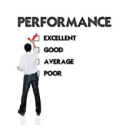
By now, regular readers know my position on the traditional annual performance review - it serves a function to provide formal, documented performance feedback on a regular basis. But its challenges are built into its delivery model - too infrequent (annual), too focused on feedback from just one person (the manager), and too fraught with angst on both the part of the manager and the employee.

Shouldn't we learn from others and determine the most effective way to reach our goals, benchmark our progress, and achieve success? Best practices are only best if you're just practicing. And I have no clue what a benchmark really is, or what you do with one.

It can seem improbable given the still-sluggish monthly unemployment reports, but in some sectors small businesses are desperate to find qualified candidates to fill jobs. Opower, a 354-person software company that helps utility customers save on energy bills, is one of those businesses.

When it comes to sourcing and recruiting, semantic search is perhaps the most powerful way to quickly find people who have experience you're looking for. Now, I am not talking about black box semantic search (e.g., Google, Monster's 6Sense, etc.).

The search for the thing that makes HR relevant is generations old. An avalanche of platitudes about the importance of people didn't get us there. The rest of the organization knows that relevance means financial performance and little else. Walk into a room full of HR pros and say, "HR is meaningless unless it makes money."

Losing hurts - especially when it's the other person who decides to move on. " Regretted turnover " is a metric that some companies now use to track how many employees choose on their own to leave. Turnover is costly in general, but losing top talent can also cause significant, even irreparable damage to your business.

MOUNTAIN VIEW, Calif. - Have you ever made a profit from a catering business or dog walking? Do you prefer to work alone or in groups? Have you ever set a world record in anything? The right answers could help get you a job at Google.

Corporate Values. I bet your organization has some. Are they on a wall in a frame, in your employee handbook, displayed in reception, on your careers site, or even on the side of a mug or a pen? Do they have a whole section to themselves on the intranet?

For sure, gamification - or the use of game mechanics in non-entertainment contexts - is one of the most overhyped and misunderstood subjects in enterprise today. Yet from humble beginnings in 2010, M2 Research projects that companies will spend upwards of $2 billion on gamification services by 2015.
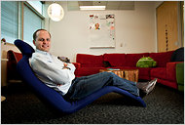
Mountain View, Calif. IN early 2009, statisticians inside the Googleplex here embarked on a plan code-named Project Oxygen. Their mission was to devise something far more important to the future of Google Inc. than its next search algorithm or app. They wanted to build better bosses.

If you haven't seen it in the news, after its stock price broke the $800 barrier, Google moved into the No. 3 position among the most valuable firms in the world. Google is clearly the youngest firm among the leaders; it has surprisingly been less than a decade since Google's IPO.

This interview with Laszlo Bock , senior vice president of people operations at Google , was conducted and condensed by Q. How is Big Data being used more in the leadership and management field? A.
